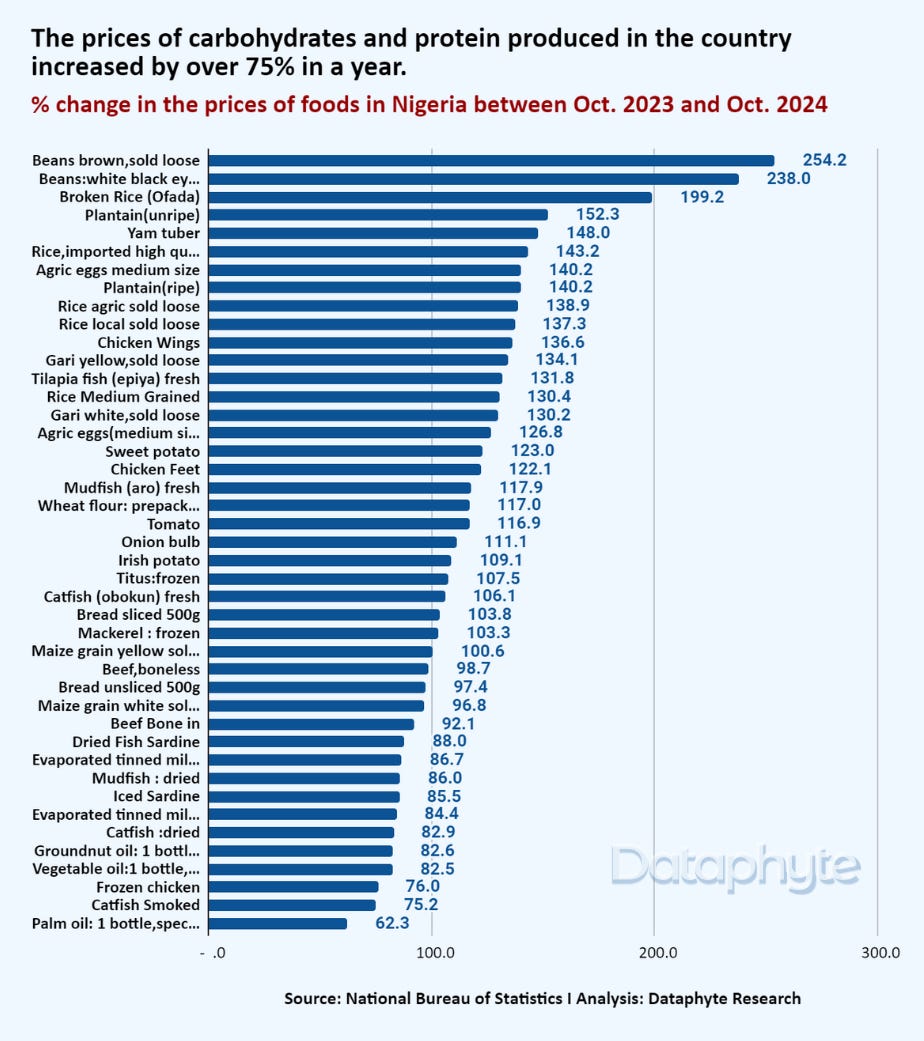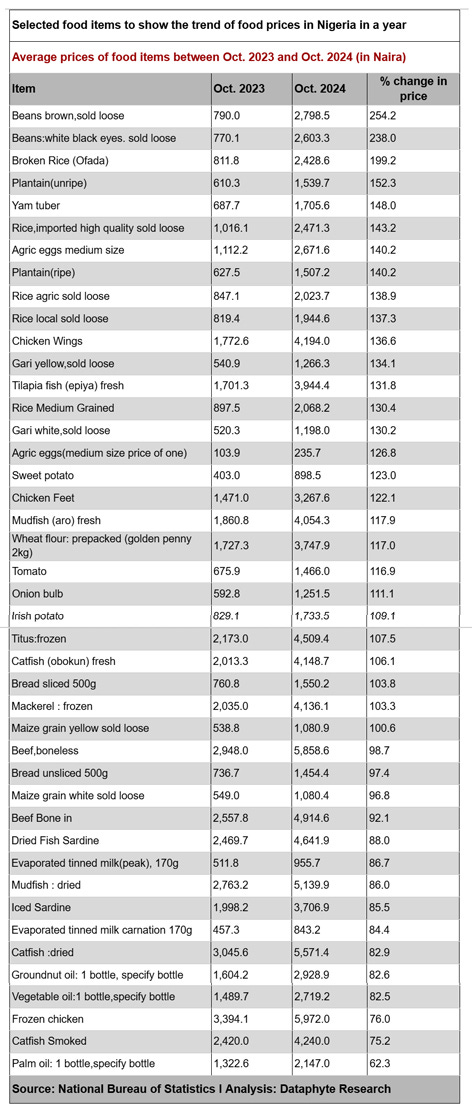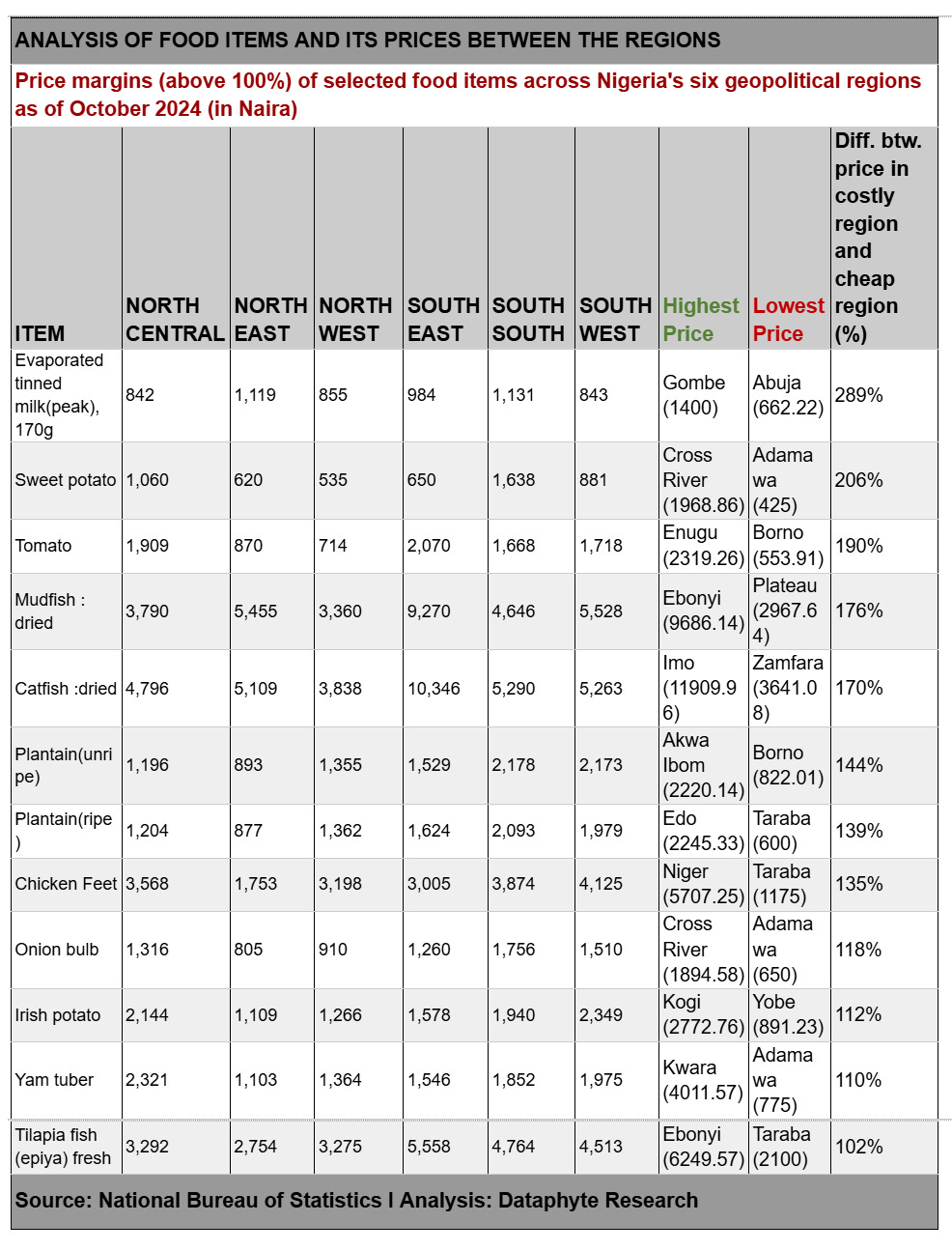Nigerians welcome 2025 with hopes that inflation will decrease to 15% from 39.9% in 2024 as projected in the 2025 budget. If all things remain equal, as experts have noted on different occasions, the economy is expected to free up a little, relieving Nigerians from the hardship they endured over the past 12 months.
Rising Inflation
An analysis of Nigeria’s inflation trends between Jan. 2024 and Nov. 2024 shows that all forms of inflation increased during this period because of two major factors: the removal of fuel subsidies and currency devaluation by the current government.
For many Nigerians, 2024 was a year marked by depressing economic growth with peaceful demonstrations across the country. Data from the National Bureau of Statistics (NBS) revealed that food inflation increased the most among other types of inflation in Nigeria, leaving millions at risk.
The cost of producing carbohydrates foods, for instance, soared the most compared to the production cost of proteins between the period of review.
While in the same period major food items such as rice (local and imported), and beans (brown and white), yam tuber, including eggs have increased in prices. Brown beans increased the most by more than 200% in a year, followed by white beans, ofada rice, and plantain.
The rising cost of all food items in Nigeria has significantly impacted Nigerians' nutrition and well-being. From NBS, the national average cost of a healthy diet increased from ₦703 to ₦1,371 between October 2023 and October 2024 respectively. Among the key food groups, vegetables marked the highest increase in a year.
However, during President Bola Tinubu’s new year speech on Jan. 1st, he noted that “[his] government is committed to intensifying efforts to lower these costs by boosting food production and promoting local manufacturing of essential drugs and other medical supplies”
As 2025 begins, the hope for lower inflation rates and a more stable economy remains a top priority for every Nigerian, who continue to feel the impact of last year's economic challenges in their daily lives.









